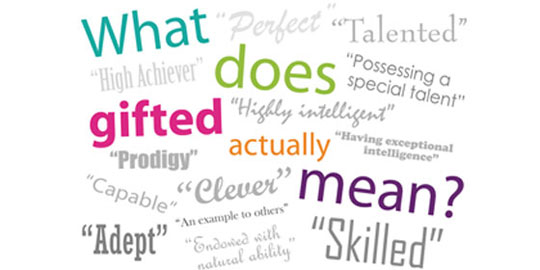What does gifted and talented mean?

Students may be identified as “Gifted” – this means they are academically, potentially in the top 10% of their school’s students in Britain.
The key word here is potentially. Someone may be top of their class, however they also may not be. They may have been given this title as “gifted” and wondered why?
Students who are gifted may be struggling to motivate themselves; for example they may have a learning difficulty (such as dyslexia in literacy or dyscalculia in numeracy) that stops them getting as good grades as they have the potential to achieve.
A gifted student may be anxious or stressed or struggling to make friends, which can hold one back instead of push one forward. While these factors may slow down one’s ability to succeed, these students still deserve their title of gifted. And here is why:
1) Who are gifted young people?
Academically/ intellectually able – they may be those who are above what is expected in subjects deemed to be ‘academic’ e.g. maths, English and science.
Creatively able- they may be those who are achieving above average in the arts subjects e.g. art, drama and music.
Physically able- they may be those who are achieving above average in subjects involving physical exertion e.g. P.E and dance.
Socially able – they may be those who are achieving above average in social areas, which may be seen through showing leadership skills and the capability to work collaboratively.
General achiever – they may be those who are achieving above average across all these areas.
2) How can we develop giftedness?
Through promoting and encouraging active questioning. Active questioning is often rare but is linked to better learning, memory and shared working.
It may take a long time to develop good questioning skills but through asking and then encouraging children to ask *10 golden questions* these skills can be developed.
These *10 golden questions* which sit at the heart of psychology are:
- Why do you think that?
- What is your evidence for that?
- Is that opinion/ idea/ statement always correct?
- Are there exceptions to what you are saying?
- What would be the opposite viewpoint?
- What do you mean by…?
- Is that an opinion or a fact?
- Are there other possible views?
- Who would that idea or opinion benefit?
- What is your motivation for saying that?
This is just an insight into the gifted and talented teaching and learning process. There are many more ideas and skills that can be used.
Sarah is a former Head of Well-Being at a top school and is currently an assistant psychologist at another school. To book a session with her, or one of our excellent tutors, please call us on 020 3198 8006, email us at he***@**************co.uk, or complete the form on the ‘Contact Us’ page.